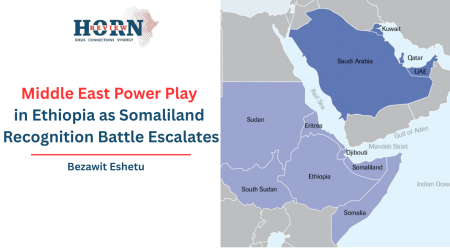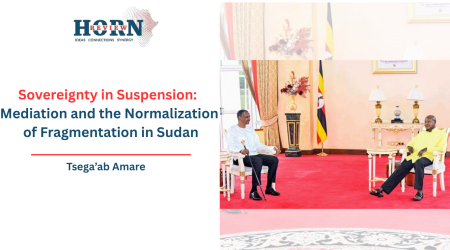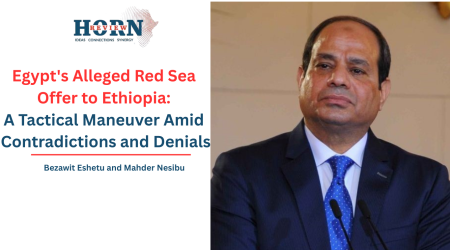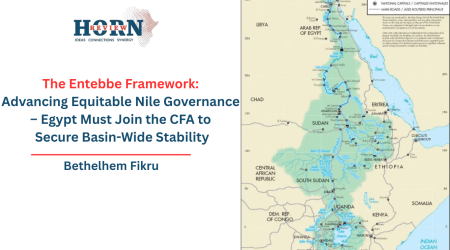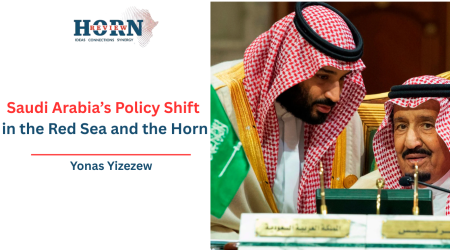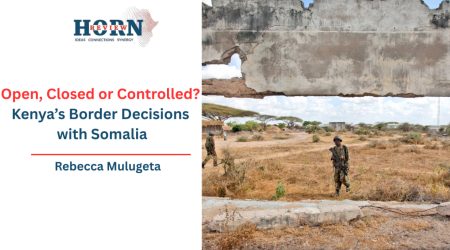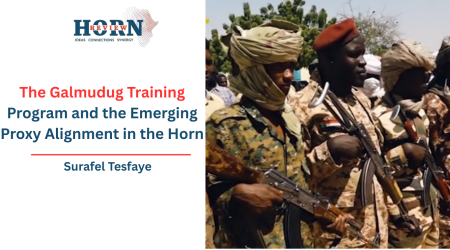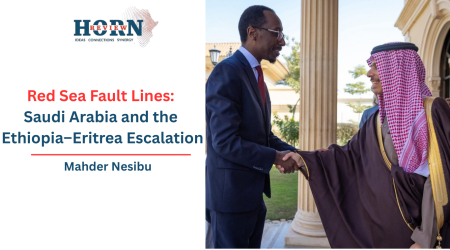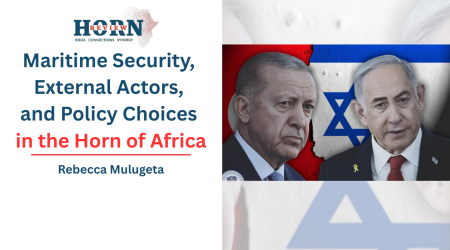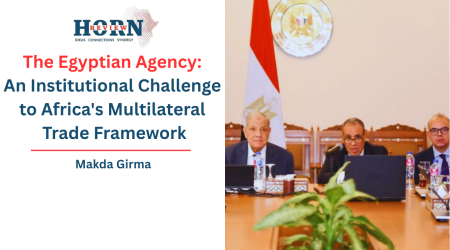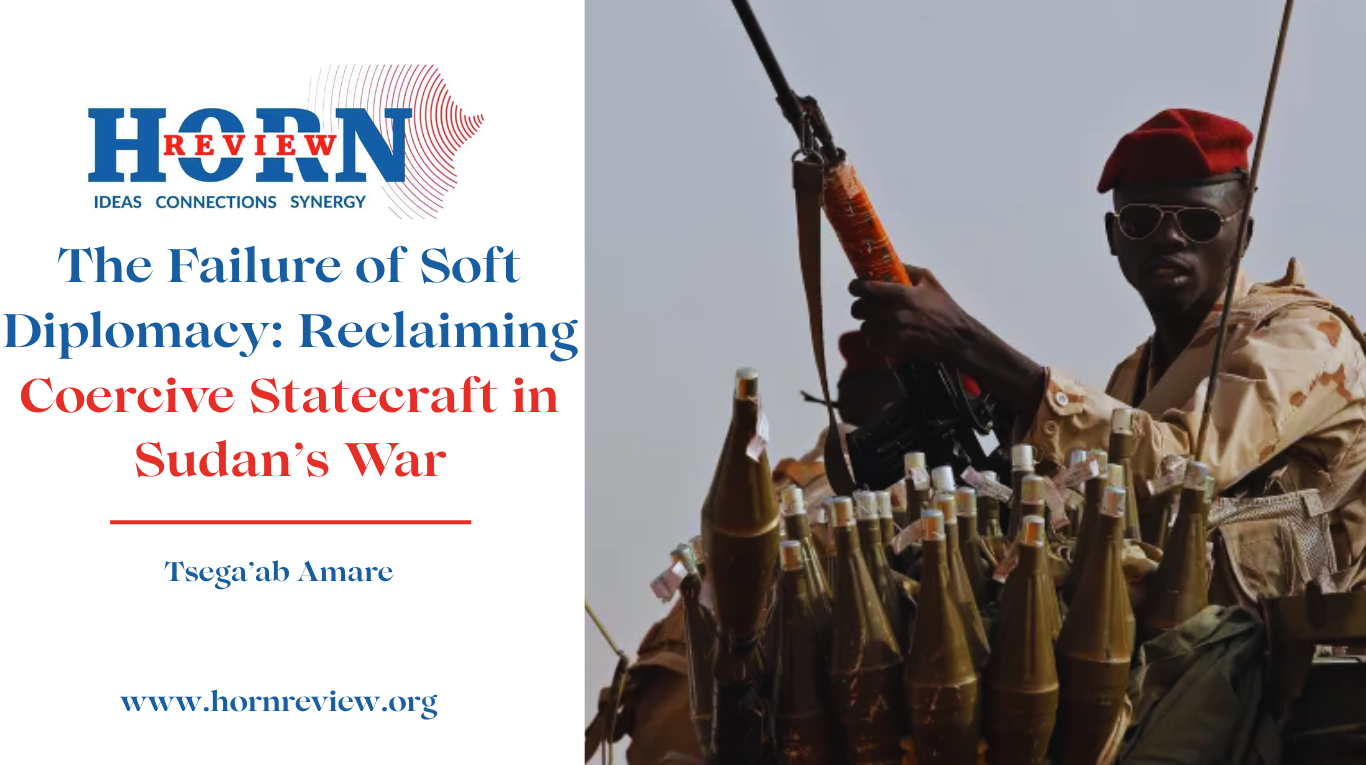
5
Nov
The Failure of Soft Diplomacy: Reclaiming Coercive Statecraft in Sudan’s War
Alan Boswell’s sharp analysis in his Foreign Affairs essay, “Sudan’s War Is the Shape of Things to Come,”1 serves as a necessary wake-up call for global diplomacy by identifying the conflict as a template for a “Middle-Power Proxy War.” He is correct: the conflict is sustained by ambitious regional actors who treat the Red Sea and the Horn of Africa as a transactional marketplace, effectively giving external spoilers veto power over any peace agreement.
However, to move from diagnosis to effective policy, we must challenge the implication that this is a fundamentally new conflict template. The war is not merely a novel proxy fight; it is the catastrophic amplification of Sudan’s domestic structural failures, the war’s true origin lies in the collapse of Sudan’s political marketplace, a framework where political power and loyalty are secured through the transactional exchange of state resources—gold, land, and foreign capital—rather than through institutional governance.
Boswell’s core insight lies in the shift of patronage. In place of U.S. or Russian strategic rivalry, the contest is now dominated by the United Arab Emirates, Egypt, and to a lesser extent Turkey and Iran. Their engagement is transactional: they seek secure Red Sea access, gold concessions, and ideological alignment, regardless of the humanitarian cost. This effectively turns the Sudanese Armed Forces (SAF) and the Rapid Support Forces (RSF) into armed commercial proxies.
Yet, framing this as primarily a proxy war minimizes the original sin: the deliberate fracturing of state authority under Omar al-Bashir. Bashir created the RSF as a counterbalance to the traditional SAF, intentionally splintering control over state revenue, particularly gold mining and key enterprises. The war between Generals Burhan and Hemedti is not an accident of foreign policy. It is the inevitable endgame of a domestic power-sharing system designed to fail, where two armed, wealthy entities were structurally destined to fight over the last piece of the pie.
External money is the accelerator, not the engine. Policy must therefore target the engine itself. The efforts led by the United States and Saudi Arabia in Jeddah, and the parallel initiatives by IGAD, have consistently failed due to a fundamental design error: perpetual exclusion. By centering negotiations exclusively on the two generals, the diplomatic process grants legitimacy and a political voice to the very actors responsible for the crisis. This approach:
- Excludes the Civilian Center: It sidelines democratic forces, neighborhood resistance committees, and civil society, the only groups capable of forming a unified, legitimate alternative to military rule.
- Reinforces Zero-Sum Calculus: It encourages the generals to view the peace process as merely a political extension of the battlefield, a platform to negotiate the division of spoils rather than a means to dismantle their own power.
Furthermore, the RSF’s campaign, especially the ethnic cleansing in Darfur, is a chilling echo of the genocide committed by the Janjaweed in the early 2000s. The international community’s failure to hold the generals accountable then is the direct cause of the present impunity. This historical context confirms that diplomacy focused on truces without accountability is morally and strategically bankrupt.
The problem, therefore, is not merely one of diplomatic architecture but of incentives. As long as violence remains profitable, peace will not be rational. Coercive statecraft must reverse this calculus.
To break the current deadlock, a new coercive policy must be adopted, shifting focus to the financial and institutional choke points that sustain the war. The conflict is fundamentally fueled by the diversion of Sudanese national resources into private military hands, laundered through international markets.
Coercive statecraft distinguishes itself from sanctions-as-usual by moving beyond targeted individual travel bans and asset freezes to enforce a systemic financial chokehold on the belligerents, making their entire military-economic enterprise non-viable. This strategy is not merely punitive; it is designed to compel the political calculation of both internal actors and external spoilers by drastically raising the transactional costs of the war.
Sanctions must expand beyond individuals to target the corporate entities and shadow networks associated with both the SAF and RSF. This includes their holdings in gold trading, agricultural exports, and real estate, as well as the international financial facilitators in the Middle East. The goal is to dramatically raise the cost of the conflict for all external spoilers, forcing a recalculation of their interests.
A political vacuum cannot be filled by the very people who created it. A civilian alternative must be cultivated and empowered. Financial and political resources should be channeled directly to this civilian entity and local resistance committees, bypassing militarized power structures entirely. We must, however, vigilantly manage the risk of external overreach, ensuring the platform maintains genuine Sudanese ownership to avoid the fatal perception of neo-tutelage — a foreign imposition — which would immediately undermine its legitimacy and broad popular acceptance within Sudan. This is a critical vulnerability that the SAF and RSF would aggressively exploit.
This is where Boswell’s larger insight remains essential — Sudan’s war is not an isolated crisis but a prototype of multipolar disorder. The only viable answer to such conflicts is a form of coercive multilateralism, a disciplined alignment of regional and global actors willing to combine pressure with legitimacy to restore the foundations of sovereignty.
Current fragmented mediation efforts must end. The African Union and IGAD must take the lead, but with ironclad unity. African institutions should establish a single, disciplined negotiation framework backed by international financial leverage. This framework must clearly communicate that the negotiation’s primary, non-negotiable objective is comprehensive Security Sector Reform leading to a unified, professional national military, not merely a political power-sharing arrangement between the generals. Any external power attempting a spoiler role must face immediate diplomatic or economic consequences.
Ultimately, Sudan’s crisis captures the new logic of global disorder that Boswell identifies, in which fragmented sovereignty, private capital, and middle-power intervention combine to create self-sustaining wars. Traditional diplomacy, built on state-centric negotiation, is increasingly ill-suited to this reality. Only a form of coercive multilateralism, anchored in coordinated financial pressure, regional legitimacy, and empowered civilian agency, can restore meaningful sovereignty and prevent Sudan from becoming the enduring template for conflict management in the post-Westphalian era.
Sudan is more than a cautionary tale. It is an active laboratory for the next generation of global conflict, where sovereign failure is subsidized by transactional capital. To prevent state collapse and humanitarian catastrophe, the global response cannot remain anchored in polite, ineffective diplomacy. The way out of Sudan’s war is through a decisive shift to coercive statecraft: targeting the financial architecture, enabling the democratic resistance, and demanding a unified, disciplined mediation approach focused on true institutional reform. The world has watched this conflict unfold once. Continuing on the current trajectory would represent a profound failure of collective responsibility and undermines international commitments to civilian protection.
1 Alan Boswell, “Sudan’s War Is the Shape of Things to Come: Why Mediators Struggle to End a New Kind of Conflict,” Foreign Affairs, October 2, 2025.
By Tsega’ab Amare, Researcher, Horn Review

